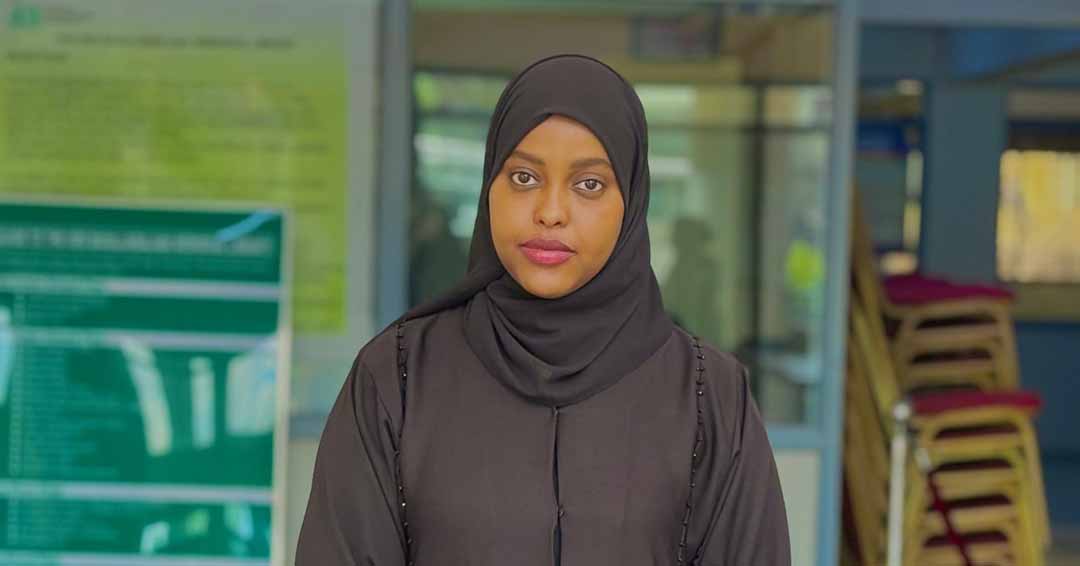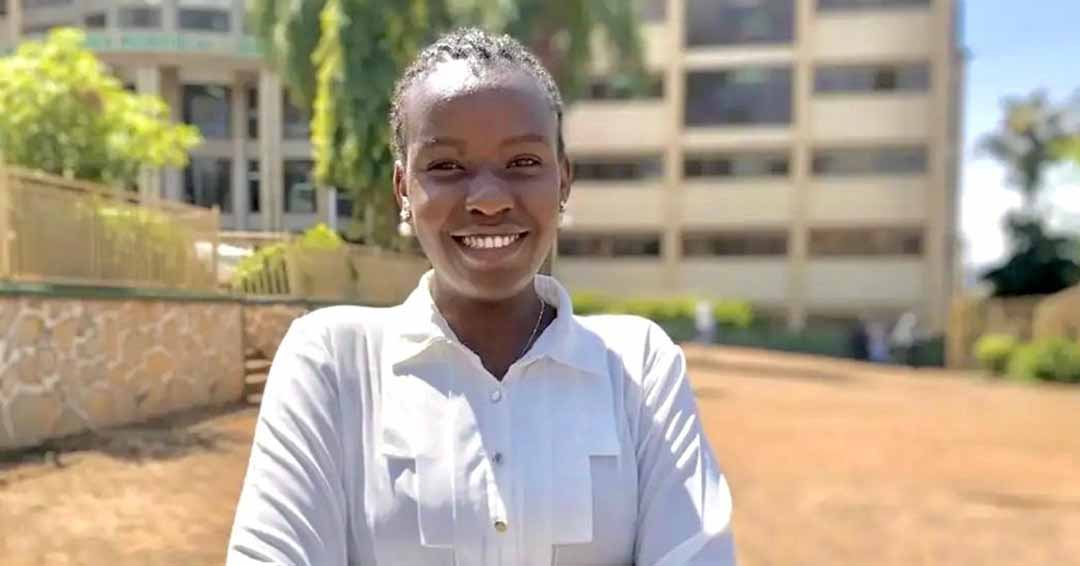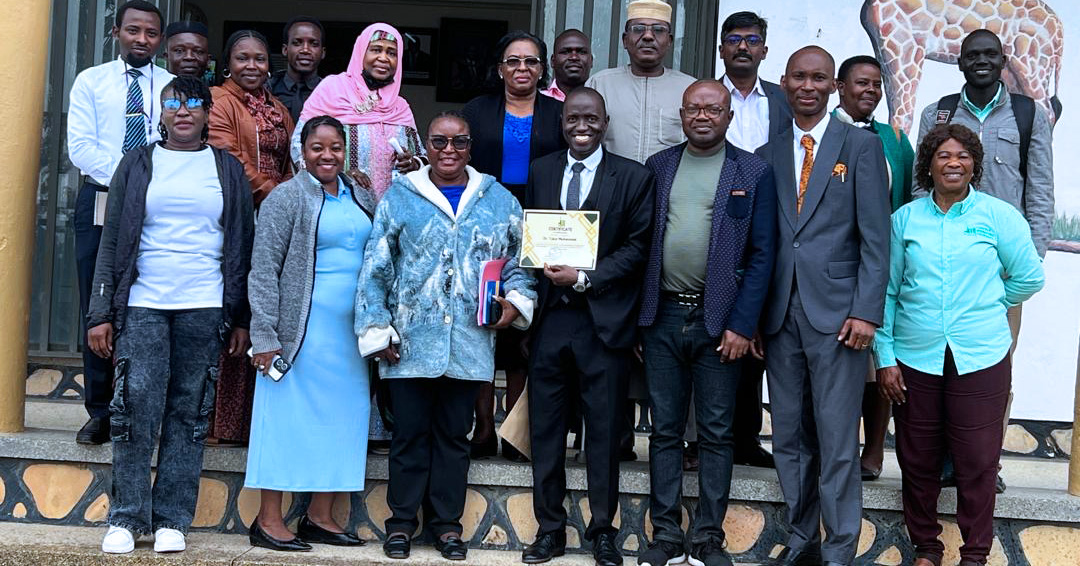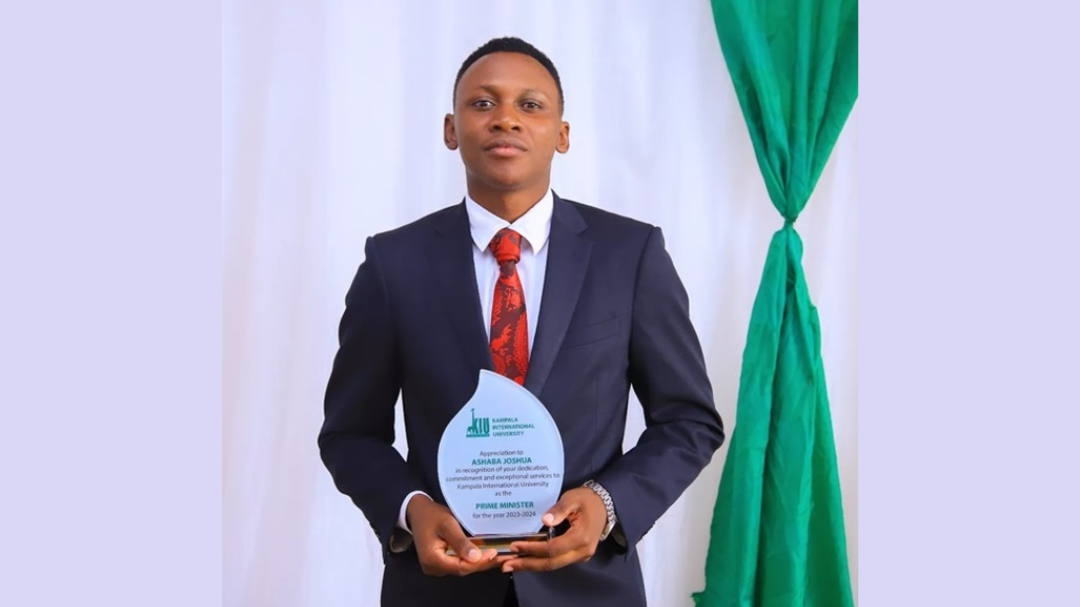#KIU31STGRAD: A Sit-Down with Multimedia Journalist Kungu Al-Mahadi Adam
- Agnes Kiconco
- /
- Jun 24, 2025 04:02 pm
- 109
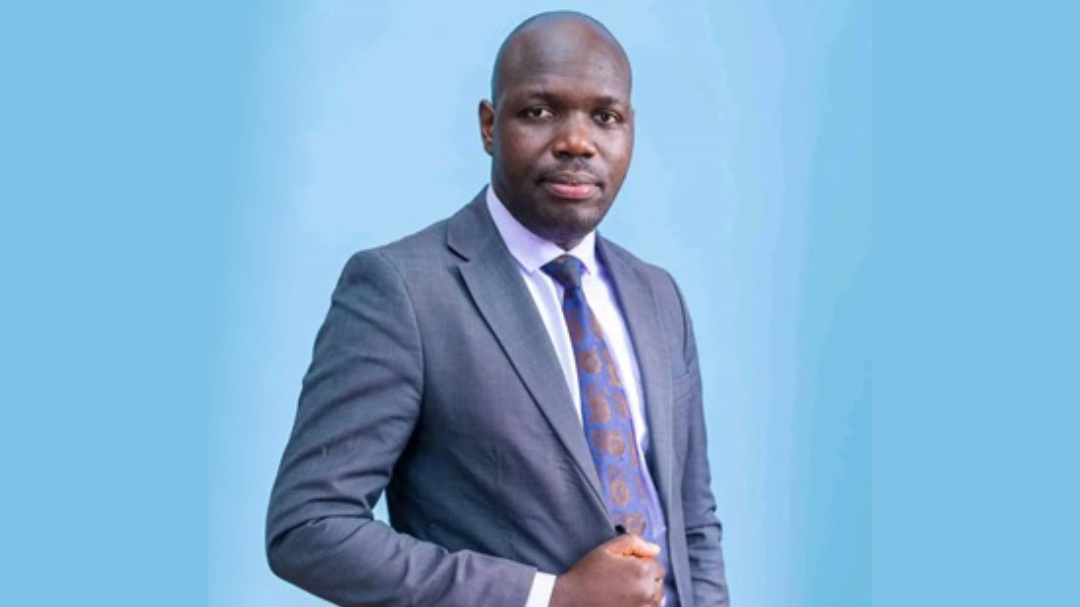
Journalist Kungu Al-Mahadi Adam has made significant strides in academia, successfully defending his master's thesis. With his academic achievement now complete, he is set to graduate on Saturday, July 26th, 2025.
He'll be joining thousands of fellow graduands at Kampala International University's (KIU) Western Campus in Ishaka, Bushenyi District, for the ceremony. Notably, the university will also be commemorating 25 years of existence, making this graduation ceremony a momentous occasion for the university community.
Interviewer: Let's start with the basics. Who is Kungu Al-Mahadi Adam, and what has your path been like in the media industry?
Kungu: I am Kungu Al-Mahadi Adam aka Adam Kungu, a 33-year-old Ugandan multimedia journalist with a deep passion for African affairs, particularly in the Horn of Africa. My media career began in 2016 as a political writer and reporter with Sunrise Newspaper, where I honed my skills in covering political developments. I later joined SoftPower News and Plus News Uganda as a writer, focusing on regional issues.
In 2019, I transitioned to broadcast journalism, working with Top Radio and Television as a political talk show host, where I engaged with key decision-makers on topical issues. In November 2020, I joined BaBa Television and Radio 4, hosting shows like Gangamuka and Hot Cup at 9, which delve into political and social conversations in Uganda.
After quitting BaBa TV in 2023, I joined Next Media, where I currently host NBS Barometer and NBS Eagle, both leading Luganda political talkshows in the country. I also host Morning Xpress on NBS' sister station, Sanyuka TV.
In 2023, I was appointed station manager at Radio 4, a role that allowed me to lead and shape content for one of Uganda’s popular urban lifestyle stations. My work has taken me to countries like Ethiopia, Kenya and Somalia, where I have extensively covered conflicts such as the Tigray war, advocating for balanced and truthful reporting. I am driven by a commitment to telling African stories with authenticity and objectivity.
Interviewer: Congratulations on successfully defending your MSc Mass Communication thesis! What sparked your interest in exploring international media propaganda and news coverage of the Tigray Conflict?
Kungu: Thank you! My interest in international media propaganda and the Tigray conflict stemmed from my deep passion for African affairs and my frustration with the misrepresentation of the conflict by some international media outlets. As a journalist covering the Horn of Africa, I observed how certain narratives painted the Ethiopian government as the sole aggressor, often ignoring the complexities of the Tigray People’s Liberation Front (TPLF)’s actions, such as their attack on the Ethiopian National Defence Force in November 2020.
I felt compelled to examine how media framing can exacerbate conflicts by advancing biased agendas, particularly when Western media outlets appeared to amplify TPLF’s narrative without sufficient scrutiny. My goal was to critically analyse these dynamics and advocate for reporting that prioritizes truth and supports regional stability, rather than fuelling division. My travels to Ethiopia and my engagement with the region’s socio-political issues further deepened my resolve to explore this topic.
Interviewer: When did you start your Master’s program, and what were some of the most memorable moments and challenges you encountered during your journey?
Kungu: I began my Master’s in Mass Communication at Kampala International University (KIU) in April 2023. One of the most memorable moments was successfully defending my thesis, which was a culmination of years of research and dedication to understanding media dynamics in conflict zones. Engaging with academic mentors and peers who challenged my perspectives was incredibly rewarding, as it sharpened my analytical skills.
However, the journey wasn’t without challenges. Balancing a demanding media career—hosting political talk shows and managing Radio 4—with rigorous academic requirements was exhausting. There were times when late-night broadcasts clashed with research deadlines, and I had to navigate the stress of meeting both professional and academic expectations.
Additionally, researching a sensitive topic like the Tigray conflict required navigating polarized narratives and ensuring my work remained objective, which was both intellectually and emotionally taxing. Despite these hurdles, the experience strengthened my resilience and commitment to impactful journalism.
Interviewer: How has your academic background influenced your media career, and what key skills do you believe are crucial for thriving in the industry?
Kungu: My academic background, including my Bachelor’s in Journalism and Mass Communication and my MSc in Mass Communication from KIU, has been instrumental in shaping my media career. The rigorous coursework equipped me with a strong foundation in media ethics, research methodologies, and critical analysis, which I apply when covering complex issues like the Tigray conflict.
My studies helped me understand the power of media framing and the importance of questioning dominant narratives, which has made me a more discerning journalist. For instance, my ability to critically assess international media coverage of African conflicts stems from academic training in media theory and propaganda analysis.
Key skills crucial for thriving in the media industry include adaptability, critical thinking, and effective communication. Journalists must navigate rapidly changing environments, whether it is breaking news or evolving technologies.
Critical thinking is essential for verifying information and avoiding biases, especially in conflict reporting. Strong communication—both in writing and on air—helps engage audiences and convey complex stories clearly. Additionally, resilience is vital, as the industry can be demanding, with challenges like censorship, harassment, or public scrutiny, as I’ve experienced in my career.
Interviewer: Looking ahead, what are your plans and aspirations in your career and academics? Any exciting projects or initiatives on the horizon?
Kungu: Moving forward, I aim to continue growing as a journalist and leader in the media industry, focusing on amplifying African voices and countering misrepresentations of the continent’s stories. As Radio 4’s station manager, I plan to innovate our programming to deliver more impactful, well-researched content that resonates with Uganda’s urban audience.
I’m also considering pursuing further academic studies, potentially a PhD, to deepen my expertise in media and conflict dynamics. On the horizon, I am excited about potential projects to expand my coverage of African affairs, through collaborations with regional media outlets. My ultimate aspiration is to contribute to a media landscape that fosters truth, unity, and progress across Africa.
Interviewer: Based on your experience, what guidance would you offer to aspiring media professionals seeking to establish themselves in the field?
Kungu: To aspiring media professionals, my advice is to stay curious, ethical, and resilient. First, develop a deep understanding of the issues you cover—whether it is politics, conflict, or social dynamics—by reading widely and engaging with diverse perspectives.
Second, uphold journalistic integrity; avoid sensationalism or bias, even when faced with pressure to conform to certain narratives. My experience covering the Tigray conflict taught me the importance of questioning dominant media frames and seeking the truth.
Third, embrace versatility—learn to write, broadcast, and adapt to digital platforms, as the industry demands multifaceted skills. Finally, be prepared for challenges like harassment or censorship, as I faced during my suspension from BaBa TV for airing a satirical clip. Build a strong network, seek mentors, and never stop learning. The media field is tough but rewarding if you remain committed to impactful storytelling.
Interviewer: As KIU marks its 25th anniversary, what are your reflections on your time at the university?
Kungu: As KIU celebrates its 25th anniversary, I am immensely grateful for the role it has played in my journey. My time at KIU, pursuing both my Bachelor’s and Master’s degrees in Mass Communication, was transformative. The university provided a supportive environment where I could explore my passion for journalism and African affairs.
Faculty members challenged me to think critically and approach storytelling with rigour, which has been crucial in my career as a political talk show host and station manager. KIU’s emphasis on practical skills, like research and media production, prepared me to navigate the fast-paced world of broadcast journalism.
On a personal level, the diverse campus community broadened my worldview and instilled resilience, helping me balance demanding roles in media and academia. KIU’s commitment to fostering innovation and excellence has inspired me to strive for impact in my work, and I’m proud to be part of its legacy as it marks this milestone.
In a special way, I thank my supervisor, Dr Joel Isabirye, who also doubles as the Head of the Mass Communication Department, for his guidance. He has been so pivotal in my journey.
Also, my wife, Boniconcilla Atugonza, for her relentless support in prayer and encouragement. May God bless her.

